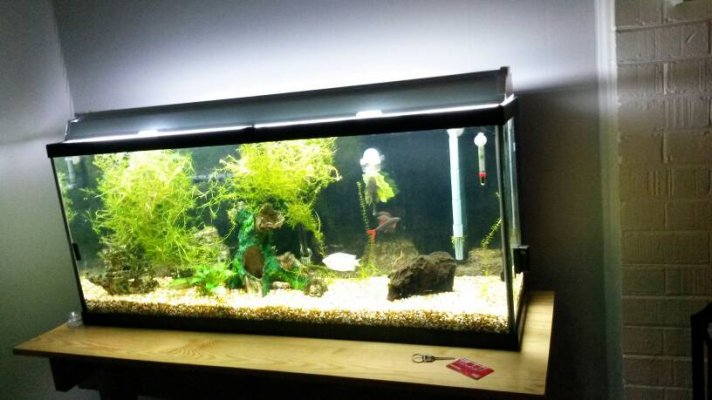enrgizerbunny
Aquarium Advice Addict
What is another test of water quality besides nitrates? I have an understocked 55 that has a nitrates accrual of about 30ppm per MONTH. I have live plants, an army of snails, and I don't over feed. I've been slack with water changes because I do not have cloudiness problems and quite frankly I got busy during the semester and slacked. I have hardy fish and the tank had been established for nearly a year so I figured there really want much harm given my current stock of 1 kissing gourami, 1 rainbow shark, and 1bn pleco.
Are there any other ways to gauge water quality? I have a very stable tank pH and as far as I can tell, very happy fish who dine on veggies almost daily, with some flakes for the kissing gourami and the occasional algae wafer.
Sent from my SCH-I435 using Aquarium Advice mobile app
Are there any other ways to gauge water quality? I have a very stable tank pH and as far as I can tell, very happy fish who dine on veggies almost daily, with some flakes for the kissing gourami and the occasional algae wafer.
Sent from my SCH-I435 using Aquarium Advice mobile app

